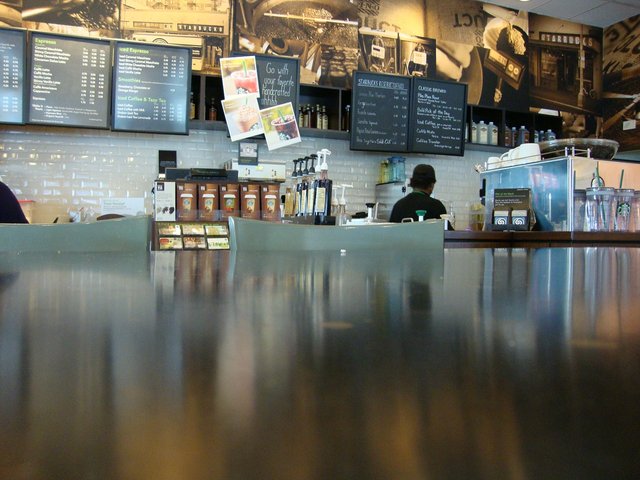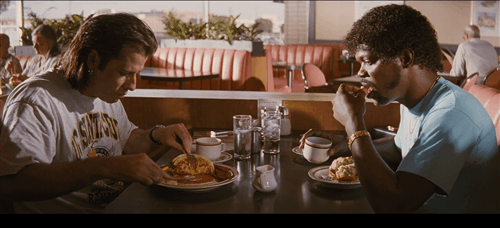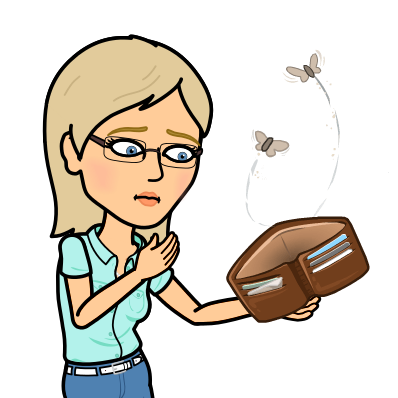Is Your Coffee Costing You More Than You Realize?

By the end of last year, it's estimated that American household debt was somewhere around $12.58 trillion.

The US isn't the only country where millions of people are adamant about living beyond their means, you can find similar situations worldwide. In the US, it's been described by the media as a love affair with debt one that even the lawmakers themselves have fallen victim to -- $20 trillion and counting.
When we try to think about where our money is going it might be easy to recognize the big purchases like a house, car, or vacation. But where we might be surprised, is in how much our little daily habits can eat away a big chunk of our money. These would be daily habits like drinking, smoking cigarettes, taking taxis, eating out daily, impulse shopping, paying bills late, and other activities.
A daily coffee habit of drinking a $2-4 cup of coffee or other specialty drink, can easily add up and end up costing hundreds or even thousands of dollars every year. It's a habit that you might be surprised to find even the more affluent among us say they try to avoid falling into.

One multi-millionaire who says that he won't fall victim to spending that much on a cup of coffee is businessman and television personality Kevin O'Leary; estimated to be worth more than $ 300 million.
“Never, never do I do that, never, that's such a waste of money for something that costs 20 cents.” says O'Leary
“You buy crap you don't need every day... Stuff that you look at now in your closet you haven't worn in two years. It felt like a good idea [at the time] when you bought those shoes, but now you don't need them. What I've learned to do and what's really helped me in maintaining growth in my own personal investing is every time I pick up something I'm going to buy, I say to myself 'do I really need this?'...Because if I don't buy it, the money is going to be invested and make money every year for me while I'm sleeping. So I don't buy a lot of crap. I buy good stuff that I need and I invest the rest.” Says O'Leary
Another successful businessman, Tim Gurner, estimated to be worth billions, has also given out the same advice when it comes to trying to avoid bad purchases. He says that unnecessary spending on things like $4-6 dollar lattes and $7 avocado toast is why many people are struggling financially.
Of course horrible spending habits aren't the reason why everyone who is struggling financially is in that current situation. And the Federal Reserve fueling an astounding loss of purchasing power for the people throughout the years hasn't helped things whatsoever. Not only that, but these multinational corporations spend billions of dollars on marketing and their whole business model relies on people making those repeated daily purchases. If more people started to make their coffee at home instead, that wouldn't be good news for them. Those companies have already started to cater to that transition though, with a variety of at-home products that they've come out with over the years, companies like Starbucks, McDonald's, and Dunkin' Donuts.
Aside from those contributions to the problem, we can still take a look at the prevalent debt in the country, the average per household, and it's easy to see that many of us still opt to make purchases that we might later regret or simply cannot afford.

According to a recent study from only a few months ago, the average Millennial is eating out roughly 5x per week.
It has been said many times that habits play a critical role in our overall enjoyment and life success. If they are bad habits they can fuel outcomes that we don't want. And if they are good habits then they help us to make decisions that are going to ideally fuel more happiness, health, and/or wealth for us in the long-run. If we pause to take a look at our daily routine, we might be surprised at what some of the decisions we are making are costing us over a long period of time.
Pics:
Pixabay
NerdWallet, FED via bloomberg
Giphy
pulp fiction via giphy
the content above is posted for informational purposes only and not to be taken as financial advice.
Sources:
http://money.cnn.com/2017/02/16/pf/americans-more-debt-in-2016/index.html
https://www.bloomberg.com/news/articles/2016-12-15/average-credit-card-debt-16k-total-debt-133k-where-do-you-fit-in
https://www.theatlantic.com/business/archive/2010/09/how-americans-love-affair-with-debt-has-grown/63552/
http://time.com/money/4075761/habits-that-cost-expensive/
http://host.madison.com/business/investment/markets-and-stocks/habits-that-ll-keep-you-from-getting-rich/article_046ba3e3-84f8-531a-9f37-baed0eb10bb5.html
https://www.cnbc.com/2017/12/04/kevin-oleary-wont-pay-2-point-50-for-coffee-instead-he-invests-it.html
https://www.theguardian.com/lifeandstyle/2017/may/15/australian-millionaire-millennials-avocado-toast-house
https://www.usatoday.com/story/money/business/2017/06/26/study-millennials-spending-eats-up-their-savings/103206984/
https://www.cnbc.com/2017/06/30/heres-how-millennials-spend-their-money-compared-to-their-parents.html
https://www.cnbc.com/2016/12/21/11-simple-money-habits-that-will-help-you-build-wealth-in-2017.html
Its almost impossible to not have debt in these trying times @doitvoluntarily and the high cost of living , at least where I live , that means I can barely afford groceries even though we split it three ways with my two sons. At times the food bank is even required ! Let alone ever eating out haha that only happens if my boyfriend takes me out a couple of times a year as were both on limited budgets and trying to save and build in the spring on our property .

For me the worse part is racking up the high interest credit card bills to the max just trying to survive LOL! Your headline caught my eye about Coffee , which I do drink a lot of and love , I always buy those huge cans that last at least a month and only when its on sale haha ! I cant afford (like many people ) To choose my brand ! LOL I wish I could , its usually the no name stuff if its not on sale anywhere ! Great post my friend ! Upped and resteemed , will be back to also up vote and resteem on my @karenmckersie blog !!👍👍👍
A book called "Your Money or Your Life"
starts by having you keep track of your expenditures.
It is not a book about budgeting.
It is not a book about eliminating.
Instead, you keep track of your expenditures, then add up how much each category costed you over the month, then decide, did that amount of money spent bring you happiness of sadness?
This works much better than just trying to live without.
This book made quite the impression on me. I wish I had more carefully followed it's advice.
However, the kind of investment the original author recommended (government bonds) ended up not being the best thing to invest in. The general principles of "Your Money Or Your Life" still apply, though.
Back then, govern-cement bonds were paying 12% interest.
Who could have foreseen 0% FED policies.
Or that we would be talking about the end of the FED.
Definitely some great thoughts. Thanks for sharing.
As someone who falls into the millenial age group, it makes me proud when I brew my wife's coffee each morning in our little 5-cup coffee maker. We buy the store brand coffee can, so each cup is costing somewhere between 10 and 15 cents if you do the math.
I've been fortunate to avoid many of the types of debt that you mentioned in this post, but I know that a few wrong turns, and I could be right in the same situation as the majority of Americans.
Once people learn that living within your means can be great and that you don't always have to have better things that your neighbors or friends at work, perhaps this culture will change. It'll be very difficult, though, since we live in such a consumer-driven culture and spending is only a click away instead of a drive or walk.
I appreciate your perspective on this issue. It's always great to get another reminder about how to be financially responsible.
Good comment, Ethan. I need to start making my own coffee again. I don't buy a lot of the expensive coffee, but I know it still adds up.
Great post. I think at the end of the day ultimate responsibility lies with the individual. However, like you said marketing and advertising are so persuasive now I sometime question whether that is still actually true.
I recall reading an article ages ago that if everyone was frugal and money smart, our current economy would completely tank, as so many industries rely on unnecessary discretionary spending....
I definitely saw this in Australia. During the GFC our government gave low income earners $1000 straight to their bank account, and asked us as a country to spend to help starve off a local recession. They were actually encouraging somewhat wasteful spending... And you know what? It actually did worked.
I know there are a lot of economist that advocate trickle down economics.... but quite frankly it appears more often than not that they have conflicting interests for voicing such a opinion.
All I know is that if you give poor people money and tax cuts they will more likely spend it, and this wealth will circulate within the economy, instead of being damned up somewhere.
What I am trying to say is yes, we should learn to manage finances better. Once we got that downpat, we need to start seeing our money as votes, and start activately voting for businesses that will actually better our communities and have a fairly distribution of wealth.
Sorry if this sounds like a rant. Its been on my mind a bit. Again great post, resteemed and followed :)
I have family that does a great job at spending all of their money, then 10 years later wonder why they are broke. It's sad to see instant gratification take away from financial security and prosperity in the future. Every time I eat out, I kick myself because I know that $20-40 could have been used to buy silver, a decent stock, or even the next best crypto. I like to purchase things that stick around and that I can use down the road rather than consume on the spot. I'll do my fair share of consumption when I'm 65.
Yes, ever since I've read The Snowball I've picked up Warren Buffett's habit of automatically multiplying the cost of all purchases. Even though I probably can't meet his returns I am young enough that I can sqfely multiply everything by at least 5. So a $4 cup of coffee is really $20 cup of coffee with the growth I've lost.
Now, on the flip side, anyone stuck in debt, especially in credit card debt, you wish that cup of coffee only cost $20.
This is a fantastic article. The information is great and it is very inspiring and eye opening. Thank you for the share.
I usually get my morning coffee from the convenient store. It only costs about 1000 KRW (about 94 cents) and I use a 10% discount card and the difference is then put on to my point card. Later on I can use the points for other purchases
A really great post, it's true how coffee has become so expensive. I choose to buy coffee outside my home. Way over priced. Very imformative article
We consume so much more money in food than we realize. Cravings have quite an enormous power on our brains, and sometimes you won't even be aware of how much you are consuming. You're absolutely right...that little coffee, snack or cookie will add up to a lot more than you realize.
I used to have a huge sugar addiction and after school, I'd go to the local store and buy a bag of candy every single day. It's only when I started writing down every single item I consumed, that I saw how much money was being thrown out of the window. So, I highly advise people who are struggling with money to do the same...keep a food journal.
Really enjoyed reading this post, it's something a lot more people should be aware of.
Would be greatly appreciated if you could provide any kind of feedback on my blogs, whenever you get a chance. It will encourage me to keep doing better and help me on my journey. Thanks!
Regards,

@inspirationalrag
Hi